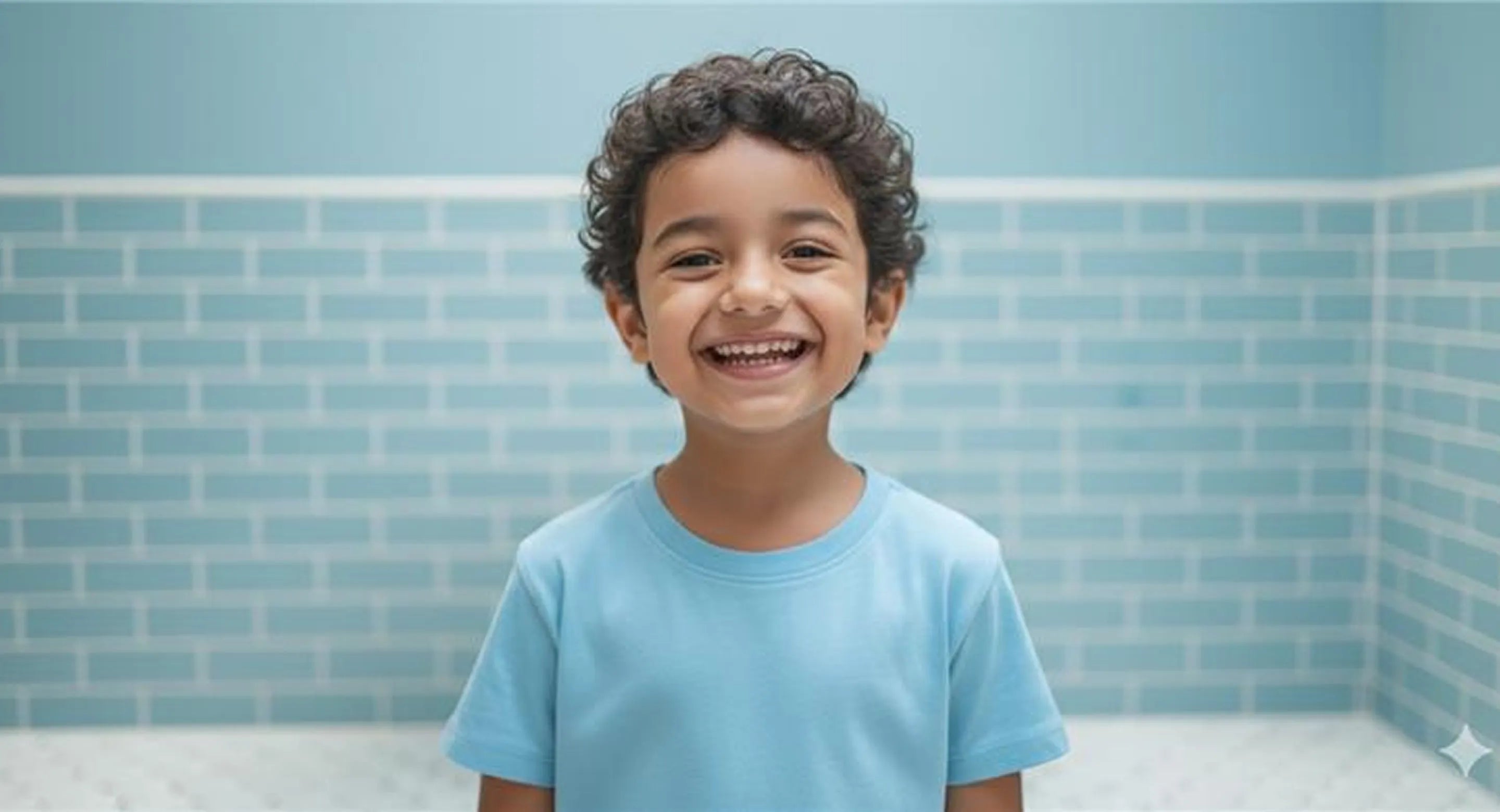The Science Is Clear
Early Care Shapes a Lifetime

Oral care is more than just brushing. Starting early means a lifetime of healthy habits and brighter smiles. With the right tools and habits, we help your kid build a strong foundation.
In Womb
Maintaining excellent oral hygiene during pregnancy is crucial for both mother and baby. Poor oral health can lead to complications like preterm birth, low birth weight, and pre-eclampsia, while hormonal changes increase susceptibility to oral issues.
What do you do as an expecting mother?
Healthy Diet
Limit sugary snacks, enjoy calcium-rich foods, stay hydrated, and chew xylitol gum to help protect your teeth and prevent decay during pregnancy.
Daily Oral Care
Brush twice daily, floss or use an interdental brush, and rinse with antimicrobial or fluoride mouthwash.
Professional Care
Inform your dentist about pregnancy, schedule early visits, and get regular cleanings to prevent gum issues.
Post Morning Sickness Rinse
Avoid brushing for 30 minutes after morning sickness. Use a gentle rinse to freshen the mouth and remove any lingering taste.


It is important not to ignore this stage as...
Infancy (0-6 Months)
In the first six months, your baby’s oral development begins. Gums are soft and delicate due to the impending onset of tooth eruption. This stage is essential for building a solid foundation for future oral care.
What do you do as a parent?
Clean Gums
After each feed, especially before sleep, use a soft muslin cloth or silicone finger brush to remove milk residue.
Massage Gums
Gently massage the gums with a silicone finger brush from 3-6 months to prepare for teething and establish a routine.
Create Habit
Establish a daily routine to help your baby become familiar with brushing sensation, making future brushing easier as they grow.
Dental Check-up
Schedule the first visit by age one or within six months of the first tooth eruption for early oral health guidance.


It is important not to ignore this stage as...
Teething Onset (6-12 Months)
At this stage your baby’s first set of teeth erupt, causing swollen gums and increased drooling. As motor skills improve, your role evolves to soothing, protecting, and establishing healthy oral habits for these emerging teeth.
What do you do as a parent?
Brush Teeth
Brush twice a day with a soft silicone brush or teether-brush to prevent plaque buildup.
Massage Gums
Continue gentle gum massage to reduce teething discomfort and introduce your baby to the idea of regular oral care.
Introduce Fluoride-Free Paste
When the first tooth appears, start with a fluoride-free toothpaste that is safe if accidentally swallowed. This is ideal for babies who have not yet learned to spit.
Schedule Check-up
Book your child’s first dental visit after the first tooth erupts or by their first birthday.


It is important not to ignore this stage as...
Toddlers (12-36 Months)
Now your toddler’s 20 primary teeth have emerged, supporting speech, chewing, and jaw growth. This stage is crucial for developing independence in brushing.
What do you do as a parent?
Encourage Mimicry
Let your toddler hold the brush and mimic your actions to build confidence and interest in brushing independently.
Brush Twice Daily
Brush your toddler’s teeth twice a day with fluoride-free toothpaste while supervising and assisting to ensure proper technique.
Offer Support
Assist with hard-to-reach areas, guiding your toddler to brush properly until they’re ready to do it alone.
Teach Them to Spit
Spitting is an important habit that sets the stage for fluoride use later. Start encouraging your child to spit after brushing.


It is important not to ignore this stage as...
Early School Age (3–6 Years)
At this stage, your child’s milk teeth are developed and are actively used for chewing. As they grow more independent, brushing becomes part of their daily routine, shaped by positive influences from school, daycare, and their surroundings.
What do you do as a parent?
Introduce Fluoride Paste
Ensure your child brushes twice a day with fluoride toothpaste, guiding them on technique and making brushing time fun.
Introduce Flossing
Start flossing as soon as tooth gaps start closing in. Teach your child the importance of cleaning between teeth to prevent plaque buildup.
Set a Routine
Make brushing a non-negotiable part of the daily routine, using timers or songs to encourage two minutes of brushing.
Schedule Check-ups
Book regular dental check-ups every six months to monitor your child’s dental health and ensure good habits are on track.


It is important not to ignore this stage as...
Mixed Dentition (6–12 Years)
From ages 6 to 12, your child transitions from baby teeth to permanent teeth. As molars erupt and baby teeth fall out, brushing habits need solidifying. This stage is crucial for setting the foundation for lifelong oral health.
What do you do as a parent?
Brush Properly
Encourage your child to brush for two full minutes, paying attention to all areas, especially their molars, to ensure thorough cleaning.
Supervise Occasionally
Check their technique, especially when brushing hard-to-reach molars, ensuring they are cleaning every tooth properly.
Encourage Flossing
As permanent teeth come in and spaces tighten, make flossing a daily habit to protect teeth from plaque buildup.
Dental Visits
Schedule regular dental check-ups every six months to monitor new teeth and catch any cavities or issues early.


It is important not to ignore this stage as...



